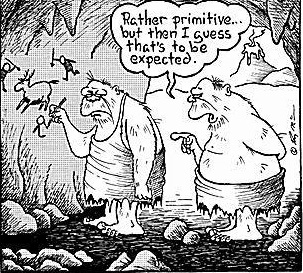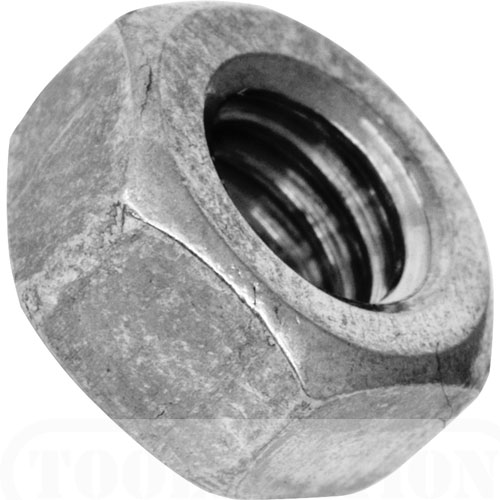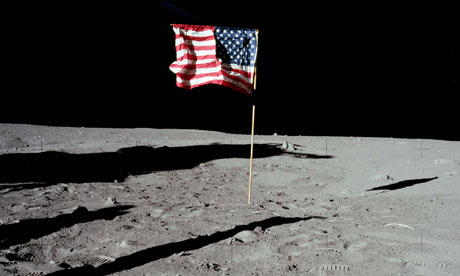Every day, one of my 806 Facebook friends will write some sort of memorializing post (similar to the ones below) commemorating an important date, event or significant milestone in their life.
- “I can’t believe that one year ago today my life changed completely. I became a mother of two beautiful little girls.”
- “It was on this date, 15 years ago, that I proposed to my wife.”
- “I ran 4.2 miles today burning 341 calories.”
- “Remembering Dad today. He died from cancer on this date four years ago. I still miss him.”
 You probably have many of your friends doing the same thing. Prior to Facebook, Hallmark had the monopoly on this market. Before that, cavemen wrote on cave walls. Today, we write on Facebook ones.
You probably have many of your friends doing the same thing. Prior to Facebook, Hallmark had the monopoly on this market. Before that, cavemen wrote on cave walls. Today, we write on Facebook ones.
Understandably, we remember birthdays. We celebrate holidays. We remember dates like 9-11 since they are seared into our National conscience. But we also remember tragic anniversaries, death dates, divorce dates & other dates we wish to forget.
Why do we do this? Why do we feel the need to make some sort of public recognition about certain dates or events in our life? Even the painful ones? There are probably many emotional reasons for this practice, but these stand out to me:
Our history is important. In school we learned about Napolean’s battles, George Washington’s victories & Abraham Lincoln’s assassination. We studied the rise and fall of the nations – from the Roman Empire to Hitler’s Germany. We learned countless dates. “In 1492 Columbus sailed the ocean blue.” December 7, 1941 is “a date which will live in infamy.” Growing up, most of us complained in school that “history is boring” and yet, the older we get – the more important it becomes to all of us. What are the dates in your personal history that are important to you? Besides obvious birth dates and anniversaries, what other events are significant “markers”, personal to your family?
We have a need to remember. It is commonly recognized that we are a forgetful people. I can barely remember what I need to buy at the grocery store, let alone remember certain events from my past. Because of this, we must find a way to remember the important things from the past so that we can remember them in the future. Oh, how I wish I took the time – as a new Dad – to write down all the things my children said as they were growing up. The older we are, the more we forget. I wish I knew more stories about myself from childhood. Older parents had to use old-fashioned things like paper and pencil, 35 mm film or trust our memories. Modern day parents are able to utilize Facebook walls, upload videos on YouTube and take pictures with Instagram to remember the quickly fading present.
The Nation of Israel had been slaves to the Egyptians for centuries. After 430 years, God had finally led His people out of bondage and into freedom. Though Moses was instrumental in getting them out of the captivity of Egypt, Joshua would be the one to lead them to the “Promised Land.” But Israel had proven to be a forgetful people. By anyone’s definition, God’s actions were truly unforgettable and yet Israel was quick to forget. Time after time, they saw God move on their behalf. You would think these miracles would never be forgotten. How can a generation forget the plague of frogs? How do you watch water come from a rock in the desert and not remember God’s provision? How could anyone cross over a massive river or sea, on dry ground, TWICE and not remember it? Apparently, God knows us better than we know ourselves. As soon as Israel had crossed the Jordan River and were in the Promised Land, God commanded Joshua to “…take up twelve stones from the middle of the Jordan, from right where the priests are standing, and carry them over with you and put them down at the place where you stay tonight.” (Joshua 4:2-3)
Why would God want them to collect rocks? For the same reason my daughter collects seashells at the beach. To remember where we have been.
Joshua then explains the meaning of the rocks to the nation,
“Let this be a sign among you, so that when your children ask later, saying, ‘What do these stones mean to you?’ then you shall say to them, ‘Because the waters of the Jordan were cut off before the ark of the covenant of the Lord; when it crossed the Jordan, the waters of the Jordan were cut off.’ So these stones shall become a memorial to the sons of Israel forever.” (Joshua 4)
Years later, Israel found themselves in a battle with the Philistines. The nomadic nation of Israel was no match for the powerful Philistine army. They cried out to God who “thundered with a great thunder on that day against the Philistines and confused them, so that they were routed before Israel.” So grateful was Israel for this victory that Samuel, their High Priest, “took a stone and named it Ebenezer, saying, “Thus far the Lord has helped us.” (I Samuel 7)
From that point on, the word “Ebenezer” has become synonymous with remembering our past. Facebook is one of our modern-day Ebenezers. It helps some of us record our personal histories. It helps others remember the lessons God teaches us.
About three years ago, I went through one of the worst experiences of my life. Without getting into the gritty, messy details – my life was falling apart and I was about as destitute as I have ever been. I felt friendless, helpless, hopeless and was literally living day-to-day struggling on every level. An older woman from my church asked if I would replace her old bathroom sink with a new vanity. Being a “Jack of all trades”, I was happy to oblige and get my mind off of my painful life. I opened the cabinet doors and began to remove the old sink. While I was laying under her sink, water dripping on my head, my back in pain from the difficult angle I had to be in – I realized that this was not going to be an easy task. Of course, at that moment in my life – everything was a struggle. It was fitting that this was no different. While I lay under her sink trying to remove the old fixture, I could see that the only thing that was stopping me from success was one tiny little nut.  This particular nut, which had clearly been on this annoying screw for over 30 years, was the only thing keeping me from removing the old sink. For over an hour, I tried to loosen it. I tried to nudge it. I used a wrench. I used a hammer. I used WD-40. I used “elbow grease.” I used brute force. I tried finesse. Convinced the nut was demon possessed, I even started praying. NOTHING would cause this thing to budge.
This particular nut, which had clearly been on this annoying screw for over 30 years, was the only thing keeping me from removing the old sink. For over an hour, I tried to loosen it. I tried to nudge it. I used a wrench. I used a hammer. I used WD-40. I used “elbow grease.” I used brute force. I tried finesse. Convinced the nut was demon possessed, I even started praying. NOTHING would cause this thing to budge.
I finally put down my tools and laid quietly under the sink considering my next move. Suddenly, tears started rolling down my cheeks. Stunned, I realized I was crying. I had a feeling this was not normal plumber behavior. I felt utterly defeated. Then I had an epiphany: This was no longer just a job for me. I had come to realize that this “favor” was no longer about replacing a sink or removing a nut. This task had just become intensely personal. The nut was no longer a nut. The nut had become a physical manifestation for the problems in my life. It represented all the junk in my past. Was I going to defeat it or was I going to let the nut defeat me? Something powerful happened to me that day, under the sink.
With the steel resolve of a warrior plumber, I had decided with an iron-clad commitment that I was not relieving the pain of my back until that nut was removed. For another 30 minutes, it was mano y sinko; man vs sink. It was a battle to the death and I was going to win it. I was going to not only remove this nut, I was going to remove the junk from my past that caused all this pain. I was not only going to replace this sink, I was going to replace my baggage with a brand new suitcase. I wasn’t going to be a victim. I was going to be a victor. I didn’t know how I was going to do it, that was mere details. I just decided it was going to happen. And it did. The nut finally succumbed to my relentless perseverance. Within the hour, a new sink was in. My friend was thrilled. All she saw was a new vanity. I saw a new perspective on life. She had no idea of the spiritual, emotional, historical moment I had just experienced.
I tell you this story for one simple reason. I raised an Ebenezer that day. I kept the nut, put it on a necklace and wore it as a trophy for months. It was the oddest piece of jewelry but at that point, one of the most valuable things I owned. When others saw it, they merely saw a beat up nut. I saw so much more. And THAT is why Ebenezers are important. That is why dates matter. That’s why we need to record our histories, not just for our sake but for the sake of those that follow us.
What are your Ebenezers? What mementos do you have that point to a particularly poignant time or event from your past? What stories do you need to communicate to your children or grandchildren before you are gone and the memories are gone with you?
Your kids will only ask, “What do these stones mean to you?” if they can see them.
